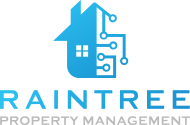At some point during your time as a landlord, you may find yourself renting to a tenant with a disability. When you do encounter a situation like this, it’s important to be aware of the laws that protect tenants (or prospective tenants) with disabilities and to have an understanding of the Fair Housing Act. Avoiding anything that can be interpreted as a discriminatory housing practice will help you be more inclusive as a landlord and protect your business, yourself, and your tenants.
What is the Fair Housing Act?
The federal Fair Housing Act and the Fair Housing Amendments Act prohibit discrimination against tenants or prospective tenants because of a disability or the disability of a person associated with them. These laws protect the following people:
-
A person with a mental or physical impairment that substantially limits a person's ability to perform one or more major life activities; or
-
A person that has a record of the disability; or
-
A person that is considered by others as having the disability
These protections are similar to those afforded to people with disabilities in many spheres of life. You might also wonder what the term “disability” covers in this case. Although it can be a broad term, it’s ultimately pretty simple. It includes anyone who has a mobility, visual, or hearing impairment, cognitive disabilities, alcoholism (as long as the individual is in a treatment or recovery program), drug addictions that aren’t associated with illegal drug use, mental illnesses, and HIV or AIDS.

What Do You Need to Know?
Bottom line up front, you need to treat tenants or prospective tenants with disabilities the same way that you would treat any other person without a disability. The law prohibits you from asking discriminatory questions, or questions that probe about potential impairments. You cannot request medical records, and you cannot guide tenants to specific units on your properties. As with any prospective tenant, you may ask some of the following questions:
-
Does the applicant meet tenancy requirements?
-
Does the applicant abuse or are they addicted to an illegal controlled substance?
-
Does the applicant qualify for a rental unit available only to people with a disability or a certain type of disability?
-
Does the applicant qualify for a rental unit that is offered on a priority basis to people with a disability or with a specific type of disability?
Beyond these types of questions, you may only ask additional questions when a tenant makes what is called a reasonable accommodation request.

We will also note here that you cannot exclude a tenant with a mental illness just because you feel that they might pose a danger. You may only reject a tenant if you have trustworthy and objective information about specific acts or questionable conduct (such as assault or threats on another tenant), or you’ve considered several factors, including:
-
The nature and severity of the risk of injury
-
The likelihood of injury
-
Whether a reasonable accommodation can eliminate the direct threat
-
What is a Reasonable Accommodation Request?
A tenant with a disability can make what is called a “Reasonable Accommodation Request” when they believe that an exception to a current rule, policy, practice, or service will afford them equal opportunity to use or enjoy the rental unit and the common areas. There needs to be a relationship between their disability and the accommodation that they are requesting. Some easy examples of this sort request include:
-
Permission to use a service animal.
-
Permission to mail a rent payment instead of paying in person.
-
A request to have a particular parking space to accommodate vehicle wheelchair access.
-
Lower counters and door-knobs that are accessible to a tenant with a wheelchair.
Remember that you don’t always need to meet a reasonable accommodation request. When the request does not relate to a tenants disability, or if it will cause you an unreasonable or undue financial or administrative burden, you can refuse to meet the request. You are required to work with the tenant (in what is called an interactive process) to find a solution and find a middle ground.
Hire a Property Manager
When renting (or considering renting) to tenants with disabilities, there is a lot to think about. Fortunately, you don’t need to be the legal expert! Hiring a North County property manager can help you in many ways from advertising to tenant-screening, but in this sort of scenario, a property management company can bring a lot of legal expertise to work for you. They can keep you safe from any liability by knowing the law.
A good North County property manager will know the law inside and out and can bring that knowledge to work for your business. Download our free guide to selecting the best San Diego area property management company to find out how. It’s as simple as entering your name and an email address, and you’ll be on your way.





